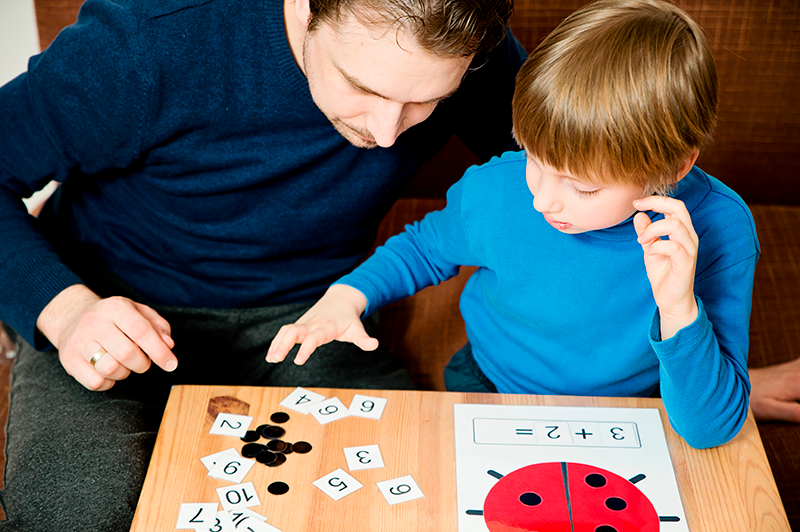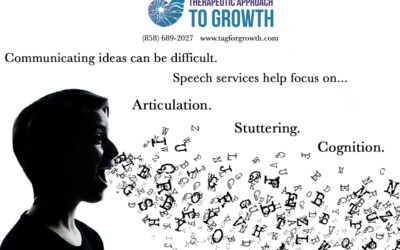The Importance of the Guided Participation Relationship

Think back to a special childhood moment when you were able to achieve a difficult goal.
Maybe you caught your first fish, successfully mastered a two-wheeler or baked your first batch of cookies. Thinking back to those moments, for many, something very special made that achievement possible. Since the beginning of time and observed in every culture in the world, is the Guided Participation Relationship (GPR). The GPR is the authentic collaboration between a more experienced “Guide” and a willing “Apprentice.” The GPR provides the apprentice with an opportunity to learn and grow alongside a teaching guide who provides learning opportunities and an appropriate level of challenge to foster a growth-seeking mindset. One core deficit of those affected by autism is the reduced ability to participate in, and to take advantage of, the GPR. For typically developing children and their parents, this relationship naturally develops and serves as the child’s main point of reference as they develop during their early years. A child affected by autism begins to withdraw from this rich and beneficial relationship around 9 months of age and thus suffers the loss of growth that takes place within this rich and essential relationship.
Research by Hobson et al. provides more information about how a child’s withdrawal from the GPR affects parental interactions and solidifies the child’s path down an atypical development trajectory.
In a 2015 study, Hobson et al. set out to observe whether families were able to progress towards re-establishment of the GPR through the protocol set forth by the program founder, Dr. Steve Gutstein. Hobson et al. first studied differences between the interaction styles in typically developing versus atypically developing dyads and found that parental interactions in atypically developing GPR relationships were found to be more directive in nature, of lower quality and with a reduced capacity to co-regulate and share experiences. Hobson et al. found that children-parent dyads experienced improvements in baseline ratings of parent-child interaction and that improvements in these ratings inversely correlated with Autism Diagnostic Observation Schedule (ADOS) severity scores.
The initial loss of the GPR is a disappointing shock to parents, leaving many unsure of how to function as a guide for their disengaged child. There isn’t any person on earth more qualified, more consistent and more able to serve as a guide to your child than you.
As you become more comfortable in your guiding role, you are more able to provide your child with those same sweet memories you enjoyed in childhood, including the proud feelings of accomplishment and the shared joy of a hard-earned victory.
-Amber Sobrio-Ritter
References:
Hobson, J. A., Tarver, L., Beurkens, N., & Hobson, R. P. (2015). The Relation between Severity of Autism and Caregiver-Child Interaction: a Study in the Context of Relationship Development Intervention. Journal of abnormal child psychology, 1-11
Related Posts
TAG Winter Wonderland 2021
2021 Winter Wonderland Our annual Winter Wonderland Event was held Dec 2021 This event is special for our team and families. We enjoy games, events and treats.Related PostsWe're Here Whenever You Need Us9466 Black Mountain RdSuite 100San Diego, CA 92126 Phone: (858)...
Electronics & Autism
For many, using electronics is like an addiction, because the child feels so much more competent when using electronics than engaging in dynamic interactions.
Feeling Nervous About The Challenges of a New School Year?
Parents all over the world toss and turn with the start of a new school year. Parents of children with special needs have additional fears about the quality of their school, the appropriateness of their child’s placement and the endless worry about making sure their child is able to enjoy meaningful, authentic relationships.
When to seek Speech Therapy for Your Child
While a Speech Language Pathologist (SLP) has many areas of expertise, (fluency/stuttering, social language, overall language development including grammar, vocabulary, understanding concepts, following directions, etc.), the concept of articulation, or sound production, may warrant the most questions for parents of school-aged children.
The Hidden Foundations For Fine Motor Skills
Fine motor skills can be defined as the skilled coordination and movement of the small muscles of the hands, fingers, tongue and mouth. An occupational therapist can help a parent understand and identify the hidden foundational skill areas that are impacting the child’s growth.
We're Here Whenever You Need Us
San Diego
9466 Black Mountain Rd
Suite 120
San Diego, CA 92126
Phone: (858) 689-2027
Carlsbad
2035 Corte Del Nogal
Suite 165
Carlsbad, CA 92011
Phone: (858) 689-2027
Temecula
27349 Jefferson Ave.
Suite 114
Temecula, CA 92590
Phone: (858) 689-2027




